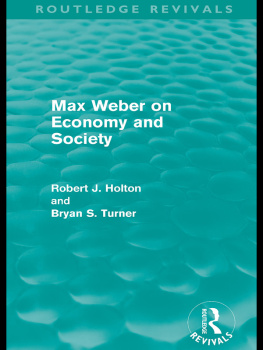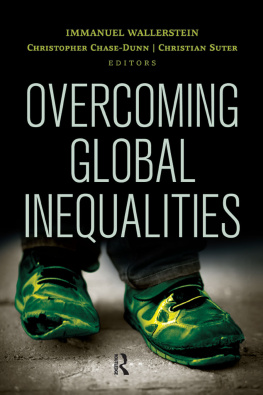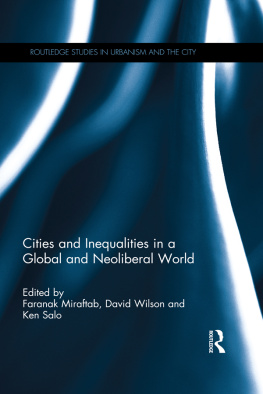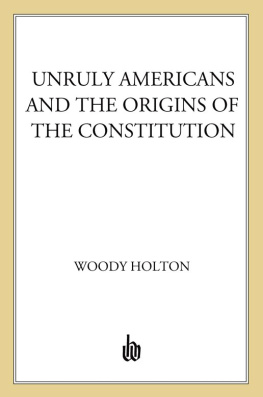Global Inequalities
Global Inequalities
Robert J. Holton
Robert J. Holton 2014
All rights reserved. No reproduction, copy or transmission of this publication may be made without written permission.
No portion of this publication may be reproduced, copied or transmitted save with written permission or in accordance with the provisions of the Copyright, Designs and Patents Act 1988, or under the terms of any licence permitting limited copying issued by the Copyright Licensing Agency, Saffron House, 610 Kirby Street, London EC1N 8TS.
Any person who does any unauthorized act in relation to this publication may be liable to criminal prosecution and civil claims for damages.
The author has asserted his right to be identified as the author of this work in accordance with the Copyright, Designs and Patents Act 1988.
First published 2014 by
PALGRAVE
Palgrave in the UK is an imprint of Macmillan Publishers Limited, registered in England, company number 785998, of 4 Crinan Street, London N1 9XW.
Palgrave Macmillan in the US is a division of St Martins Press LLC, 175 Fifth Avenue, New York, NY 10010.
Palgrave is a global imprint of the above companies and is represented throughout the world.
Palgrave and Macmillan are registered trademarks in the United States, the United Kingdom, Europe and other countries.
ISBN 9781137339577 hardback
ISBN 9781137339560 paperback
This book is printed on paper suitable for recycling and made from fully managed and sustained forest sources. Logging, pulping and manufacturing processes are expected to conform to the environmental regulations of the country of origin.
A catalogue record for this book is available from the British Library.
A catalog record for this book is available from the Library of Congress.
Printed in China
Tables
Acknowledgements
The topic of global inequality evokes anger, passion, perplexity and dismay, despair as well as hope. These arise in many different ways, both in relation to the scale of the problems and challenges involved and because of the seeming lack of current success in resolving grave inequalities and injustices. This book navigates a course between hope and despair drawing on theory, evidence, and policy evaluation, while avoiding ideological partisanship.
I have drawn on wide reading and on conversations about globalization with a range of scholars. I am indebted to Roland Robertson, Supriya Singh, Chris Rumford, Sandra Holton, Steve Edwards, Kevin ORourke, Anthony Elliott, and John Braithwaite for their stimulating ideas over the last decade, well before the idea of this book emerged in 2012. Anna Marie Reeve first suggested that I write a book on global inequality, and I am very grateful for her perspicacity in putting the project to me.
The electronic journal library of Trinity College, Dublin, has been a wonderful resource in giving me access to journal literature across many disciplines. Mid-way through the writing I became Adjunct Professor of Sociology at the University of South Australia, and I thank the University and the Hawke Research Institute for their support for my work. I also turned increasingly to reading novels as I wrote this book, feeling that academic writing could be far more imaginative and aesthetically pleasing than it is. I dont think I have in any way transformed my writing style as a result. But I am very glad to have had contact with the work of Ivan Turgenev, Penelope Fitzgerald, and David Mitchell, all of whom have crafted powerful narratives out of complex and uncertain social circumstances. In my own case, this book also attempts to locate the threads of plausible narratives out of complex and uncertain features of global inequality, and to reach out, however fleetingly, into the experience of particular persons.
Sandra, George, Flora, and Anthony have provided love, encouragement, and many kindnesses during the writing of this book. I am, as ever, in their debt in so many ways.
Abbreviations
BRIC | Brazil, Russia, India, China |
CPE | Cultural Political Economy |
CRT | Critical Race Theory |
DALYs | Disability-Affected Life Years |
FAO | Food and Agriculture Organization |
FX | Foreign Exchange (as a basis for foreign |
currency conversion) |
GDP | Gross Domestic Product |
HDI | Human Development Indicators |
HIE | High Inequality Equilibria |
ILO | International Labor Organization |
IMF | International Monetary Fund |
LIE | Low Inequality Equilibria |
MDG | Millennium Development Goals |
NGO | Non-Government Organization |
OECD | Organization for Economic Cooperation and |
Development |
PPP | Purchasing Power Parity |
WHO | World Health Organization |
WTO | World Trade Organization |
UN | United Nations |
UNICEF | United Nations Childrens Fund (originally |
United Nations International Childrens |
Emergency Fund) |
UNCTAD | United Nations Commission on Trade and |
Development |
UNDP | United Nations Development Program |
UNODC | United Nations Office on Drugs and Crime |
Introduction
The world is a very unequal place. The gap between rich and poor is getting wider rather than narrowing. Wealthy individuals and households from business, politics, and celebrity culture live in a comfortable elite world of pleasure, prestige, and power. Meanwhile millions of children starve, tens of thousands of women experience domestic violence, and poorly paid workers struggle to survive. Behind these stark interpersonal contrasts lie powerful institutions, customs, and ideologies, each strongly implicated in structures of inequality. This state of affairs generates anguish and misery, social criticism and conflict, and for many, a strong sense of moral outrage.
A vital point to make at the outset is that inequality is global as well as national in scope. We often think of inequality as a feature of individual countries. Yet there are profound contrasts in income, wealth, health, and social participation between countries as well as within them. Many also believe that global inequalities are very much the product of globalization. The suggestion is that unless globalization is radically reformed or countered by some alternative set of social institutions, levels of global inequality will get worse.
Alongside these issues, there is a growing sense that the scale of global inequality is undermining the legitimacy of the global economy and the way it is organized through global markets, corporations, and forms of governance. This was reflected at the January 2014 World Economic Forum at Davos. Here a number of elite participants expressed concern that global inequality had reached a level that could intensify social conflict and increase pressure on governments to regulate global business (Kennedy and Martinuzzi 2014). The status quo, it seems, is unsustainable.










